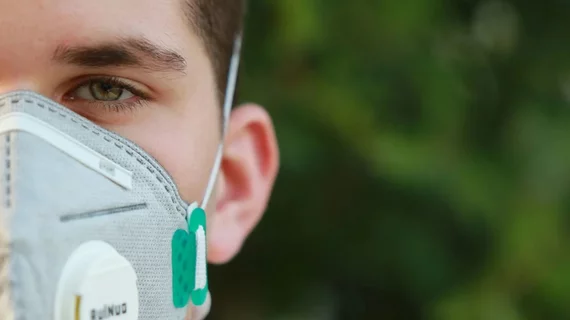AI system checks for face masks, high temperatures to slow spread of COVID-19
Microsoft has debuted a new AI solution that could help slow the spread of the new coronavirus: an automated system that can monitor hospital entrances to make sure people are wearing a face mask and don’t have a fever.
According to a new report from Forbes, Microsoft designed the system to check temperatures and look for face masks at the same time using a thermal sensor. So far, the team is referring to its creation as the “AI masks and infrared temperature 2-in-1 detection device.”
Microsoft debuted the system at Cardinal Tien Hospital, a 300-bed hospital in Taiwan. The hospital had previously been asking staff members to monitor the entrance, checking each person to see that they wore a face mask and did not have a fever. Liao Mao-hung, administration vice superintendent for the hospital, told Forbes the system has been helpful as doctors work to combat COVID-19.
“We can guard our doorways in a timely way and at the same time reduce the burden on our hospital staff people,” Mao-hung said. “There’s also the principle of keeping infected people away from our staff.”
Click below to read the full story:

